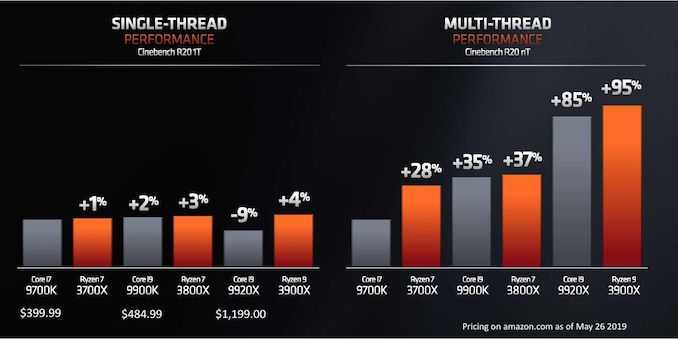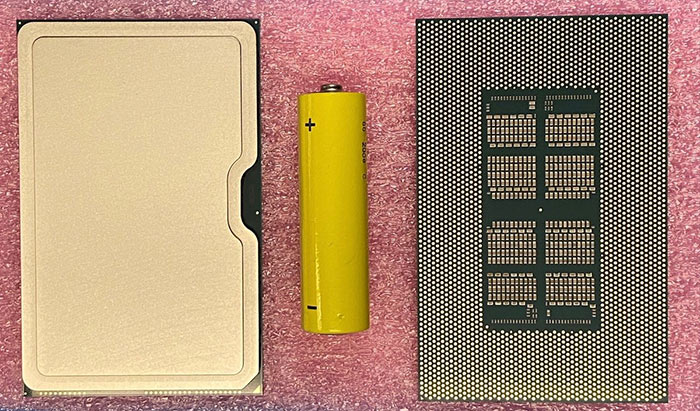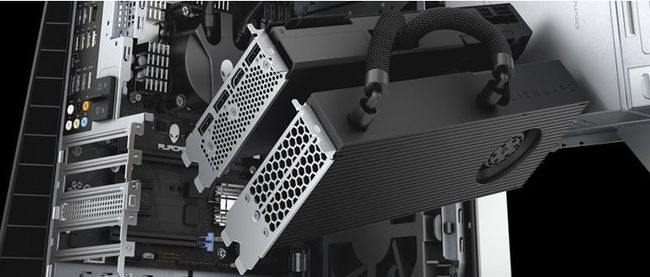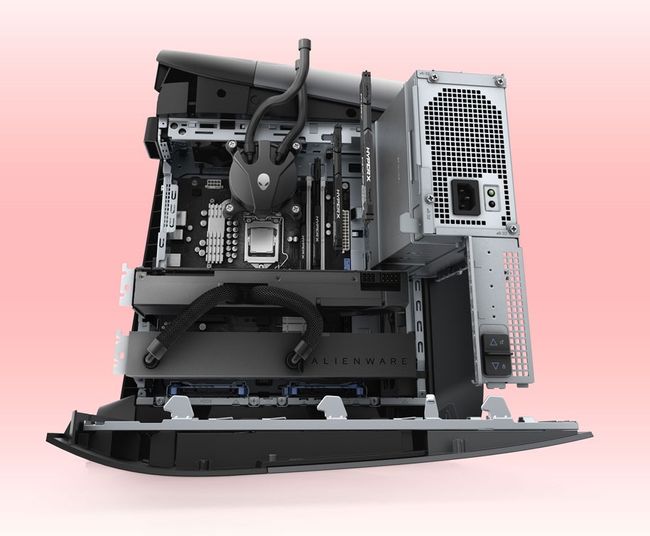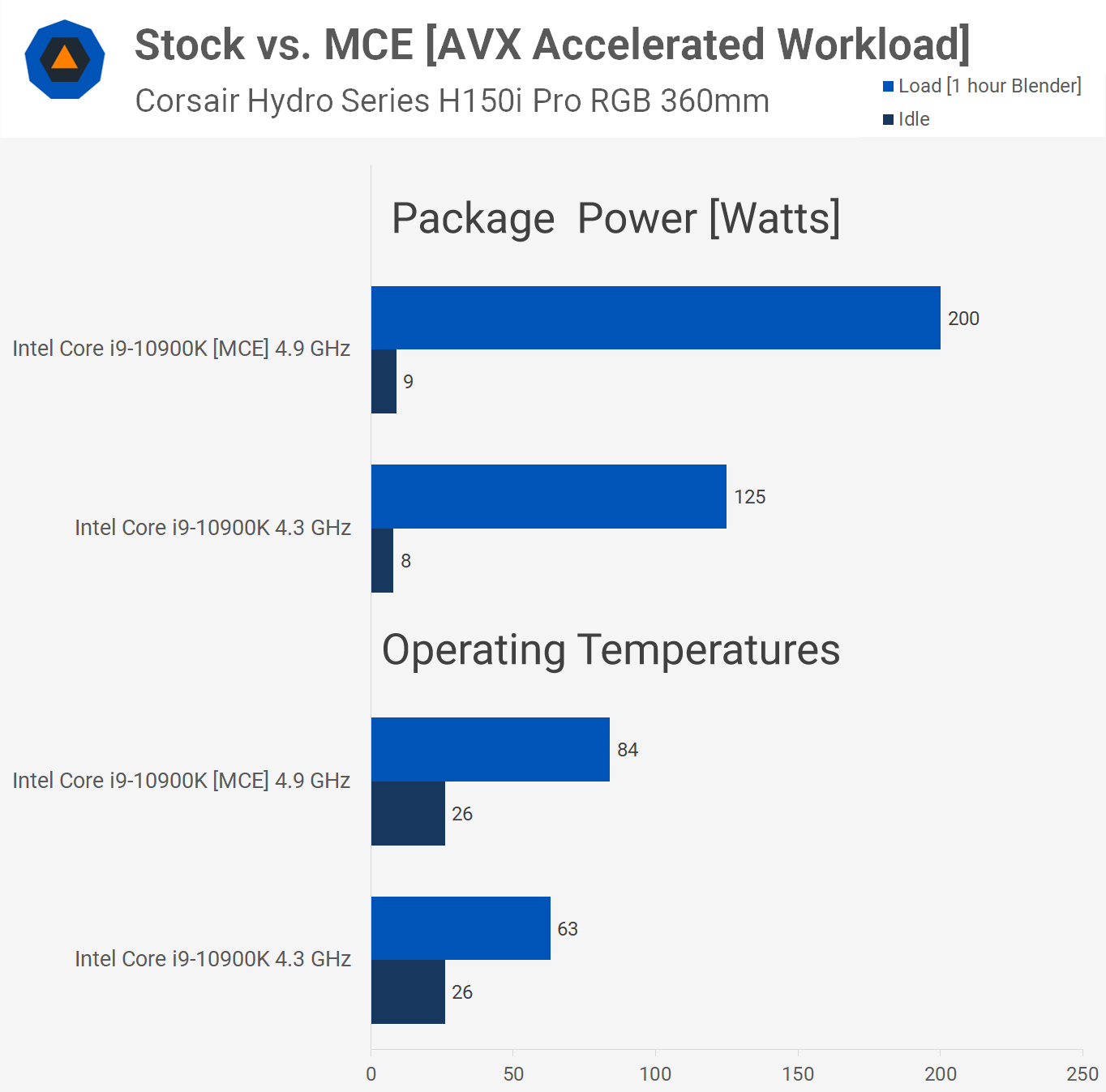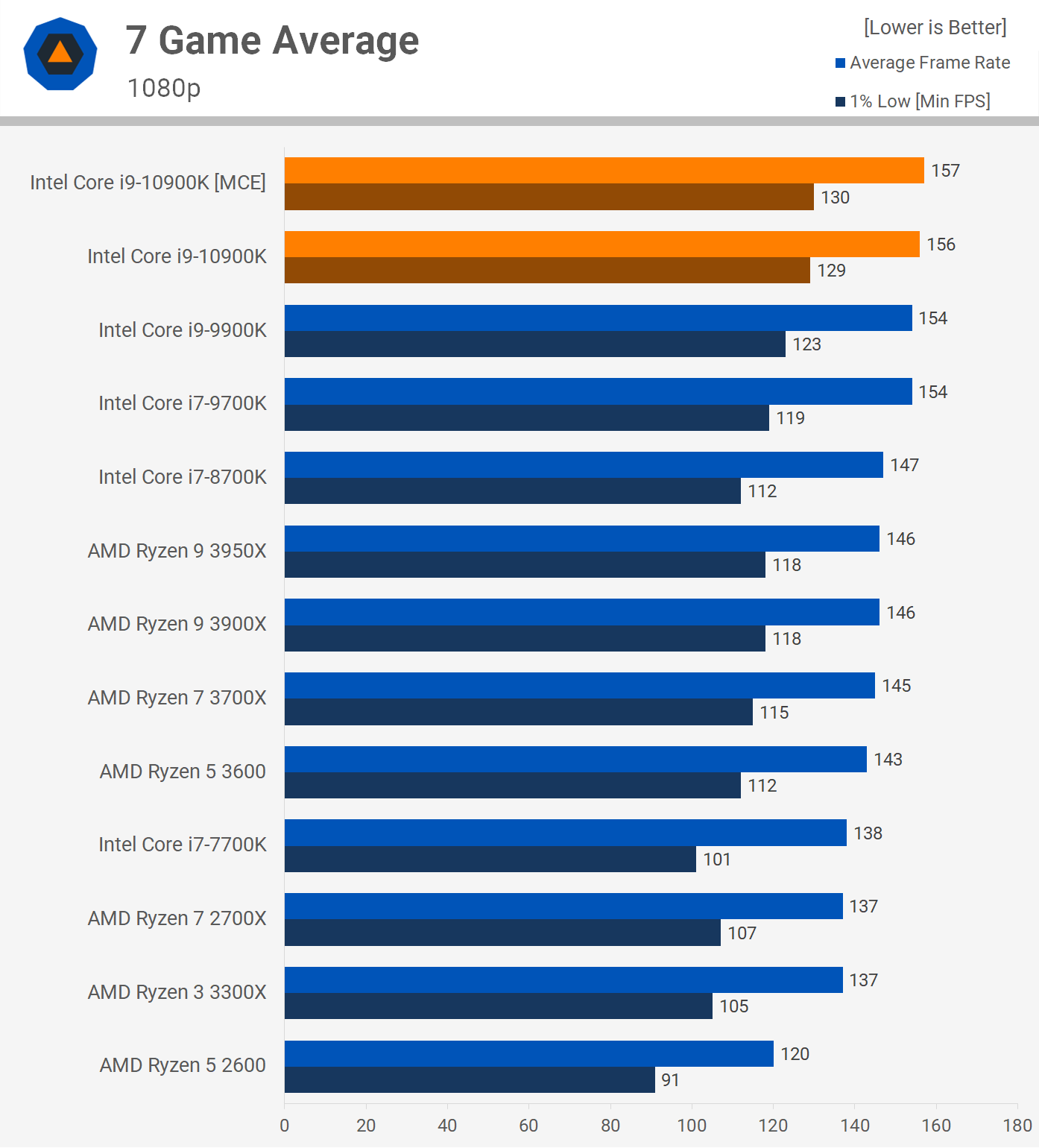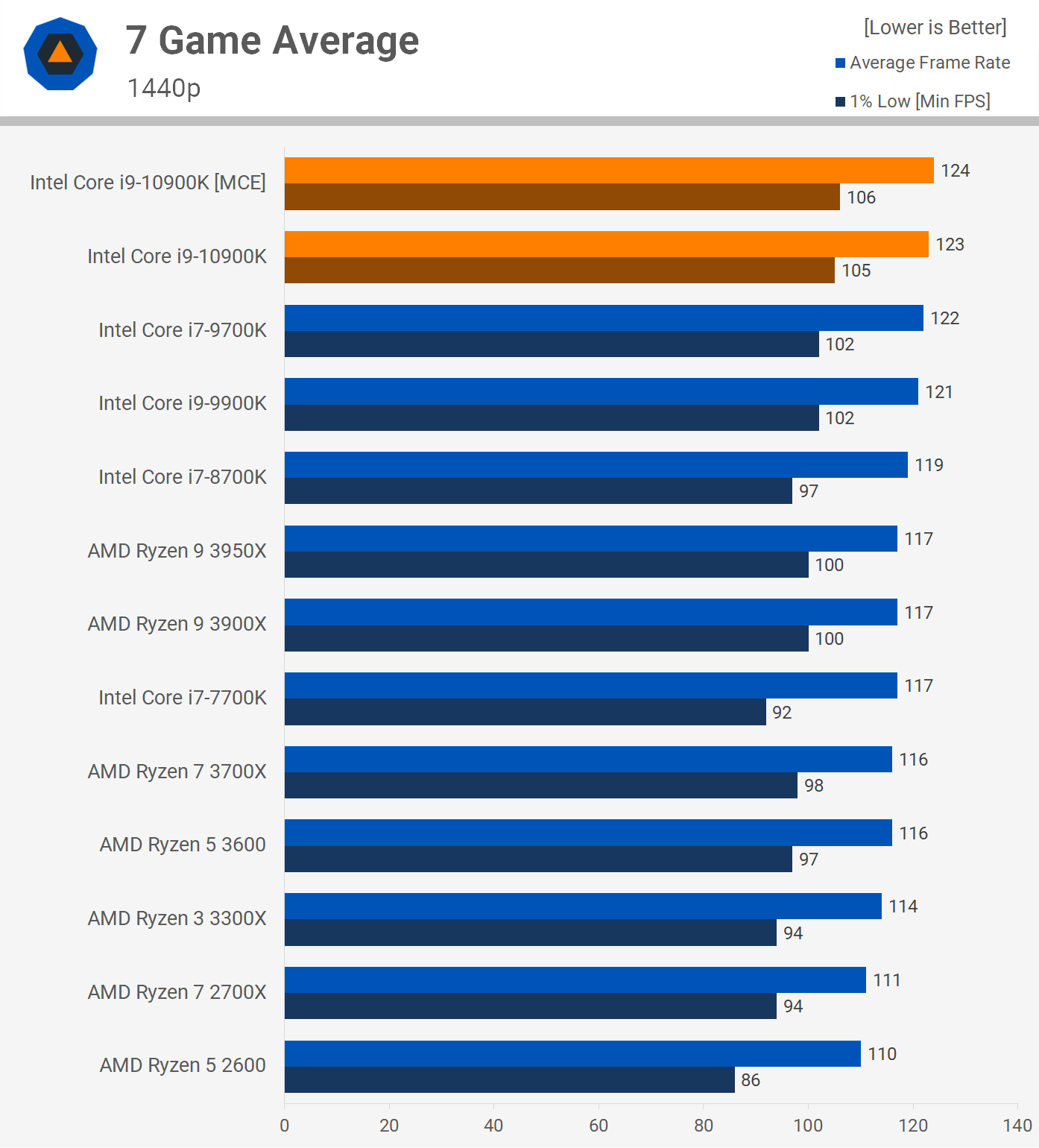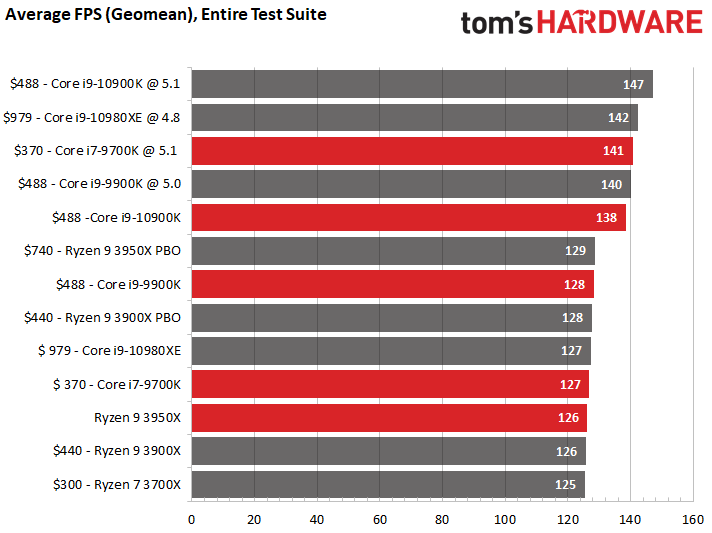- Joined
- Jun 13, 2005
- Messages
- 66,473
- Reaction score
- 38,217
I shouldn't be sharing this, it's such a vaporous rumor at this point, but I couldn't help myself. Highlighted the key parts in red.
AMD Ryzen 4000, Zen 3 Desktop CPUs Could Bring Estimated 20% IPC Increase over Zen 2, Internal Performance & Efficiency Figures Outperform Intel CPUs By Huge Margin
Cliffs: not only is Ryzen 4000 beating the pants off Intel's disastrous Comet Lake chips we're just starting to see benchmarked in the wild, but it's thrashing the successor Rocket Lake-S generation to those chips. Furthermore, as we already know, these chips will run on X570 motherboards, but they could potentially even run on X470 & B450 motherboards, too, so many current AMD owners won't even have to upgrade their motherboards to upgrade their CPU.

AMD Ryzen 4000, Zen 3 Desktop CPUs Could Bring Estimated 20% IPC Increase over Zen 2, Internal Performance & Efficiency Figures Outperform Intel CPUs By Huge Margin
WCCF Tech said:he AMD Ryzen 4000 Desktop CPUs, codenamed Vermeer, are planned to launch later this year for the AM4 socket. There have been several rumors about these processors but the latest one comes from Ice Universe who's a prominent leaker and has covered many stories that have turned out to be true in the past. Regardless, it is still advised that since this is a rumor, the info may or may not end up being true so a slight pinch of salt is always recommended.
According to the information which was posted by Ice Universe over on his Weibo account which our friend David got sight of, the AMD Ryzen 4000 Desktop CPUs might be a bigger deal than we have previously been told.
The rumor mentions that engineers at two well-known OEMs have indicated that the performance of Ryzen 4000 CPUs based on the Zen 3 architecture has risen to an 'Alarming Level'. In the next statement, it is reported that these OEMs have also compared the performance of Ryzen 4000 with Intel's upcoming products, and based on the results, AMD Ryzen 4000 will utterly beat Intel in both performance and efficiency figures.
Now it is not known whether the OEMs are comparing the performance of AMD's Ryzen 4000 Desktop CPUs with Intel's Comet Lake or the next-generation Rocket Lake line of desktop CPUs. From what I get, it must be Rocket Lake-S which is being compared to AMD's Ryzen 4000 CPUs. Now Rocket Lake-S isn't a standard chip either.
The Rocket Lake CPUs will be featuring a 14nm backport of either Sunny Cove or Willow Cove cores. The Sunny Cove cores bring at least an 18% jump in IPC over Skylake while Willow Cove will further improve IPC. The main hurdle for Intel is that it's Skylake 14nm architecture has matured a lot and keeping up with it in terms of clock speeds would be a hard undertaking. So taking the 18% figure as a baseline while taking into consideration that Zen 2 matches or slightly exceeds the Skylake core in IPC, the fight would be real close, especially if what's reported in the next statement is true.
The same leaker reports that AMD has claimed a theoretical IPC improvement for Zen 3 of about 15-17% but once again, internal tests by the OEMs reveal that the IPC is much better than AMD's own claims. The first AMD Ryzen 4000 chips based on the advanced 7nm+ architecture feature IPC that exceeds expectations which leads me to believe that we can get anywhere from 15% to all the way up to 20% IPC increase with Zen 3 cores. This would be a massive IPC uplift for Ryzen 4000 Zen 3 CPUs if true so once again, wait for the official announcement which is expected around the 2nd half of 2020.
The AMD Zen 3 architecture is said to be the greatest CPU design since the original Zen. It is a chip that has been completely revamped from the group up and focuses on three key features of which include significant IPC gains, faster clocks, and higher efficiency.
AMD has so far confirmed themselves that Zen 3 brings a brand new CPU architecture, which helps deliver significant IPC gains, faster clocks, and even higher core counts than before. Some rumors have even pointed to a 17% increase in IPC and a 50% increase in Zen 3's floating-point operations along with a major cache redesign:
When asked about what kind of performance gain Milan's CPU core microarchitecture, which is known as Zen 3, will deliver relative to the Zen 2 microarchitecture that Rome relies on in terms of instructions processed per CPU clock cycle (IPC), Norrod observed that -- unlike Zen 2, which was more of an evolution of the Zen microarchitecture that powers first-gen Epyc CPUs -- Zen 3 will be based on a completely new architecture.
Norrod did qualify his remarks by pointing out that Zen 2 delivered a bigger IPC gain than what's normal for an evolutionary upgrade -- AMD has said it's about 15% on average -- since it implemented some ideas that AMD originally had for Zen but had to leave on the cutting board. However, he also asserted that Zen 3 will deliver performance gains "right in line with what you would expect from an entirely new architecture."
- The Street
Other rumors have pointed out to a 50% increase in overall floating-point performance. We also got to see a major change to the cache design in an EPYC presentation, which showed that Zen 3 would be offering a unified cache design which should essentially double the cache that each Zen 3 core could have access compared to Zen 2.
The CPUs are also expected to get up to 200-300 MHz clock boost, which should bring Zen 3 based Ryzen processors close to the 9th Generation Intel Core offerings. That, along with the massive IPC increase and general changes to the architecture, would result in much faster performance than existing Ryzen 3000 processors, which already made a huge jump over Ryzen 2000 and Ryzen 1000 processors while being an evolutionary product rather than revolutionary, as AMD unveiled very recently.
The key thing to consider is that we will get to see the return of the chiplet architecture and AMD will retain support on the existing AM4 socket. The AM4 socket was to last until 2020 so it is likely that the Zen 3 based Ryzen 4000 CPUs would be the last family to utilize the socket before AMD goes to AM5 which would be designed around the future technologies such as DDR5 and USB 4.0. AMD's X670 chipset was also hinted as to arrive by the end of this year and will feature enhanced PCIe Gen 4.0 support and increased I/O in the form of more M.2, SATA, and USB 3.2 ports.
It was recently confirmed by AMD that Ryzen 4000 Desktop CPUs will only be supported by 500-series chipsets which caused a major uproar in the tech community but after talking to motherboard makers, there's still a slight chance that AMD would allow BIOS revisions to be released for Ryzen 4000 compatibility on at least 400 series chipsets such as X470 and B450.
As for competition, the AMD Ryzen 4000 'Zen 3 Vermeer' lineup would compete against Intel's soon to be released Comet Lake-S and its upcoming Rocket Lake-S desktop processors. Tackling the Intel Comet Lake-S won't be so hard since the Ryzen 3000 CPUs are competitively positioned against the entire lineup as evident from the recent performance leaks, but Rocket Lake-S seems to be a major architectural uplift for Intel (although still based on 14nm process) which might just be Intel's way back in the desktop mainstream market.
Cliffs: not only is Ryzen 4000 beating the pants off Intel's disastrous Comet Lake chips we're just starting to see benchmarked in the wild, but it's thrashing the successor Rocket Lake-S generation to those chips. Furthermore, as we already know, these chips will run on X570 motherboards, but they could potentially even run on X470 & B450 motherboards, too, so many current AMD owners won't even have to upgrade their motherboards to upgrade their CPU.

Last edited:

